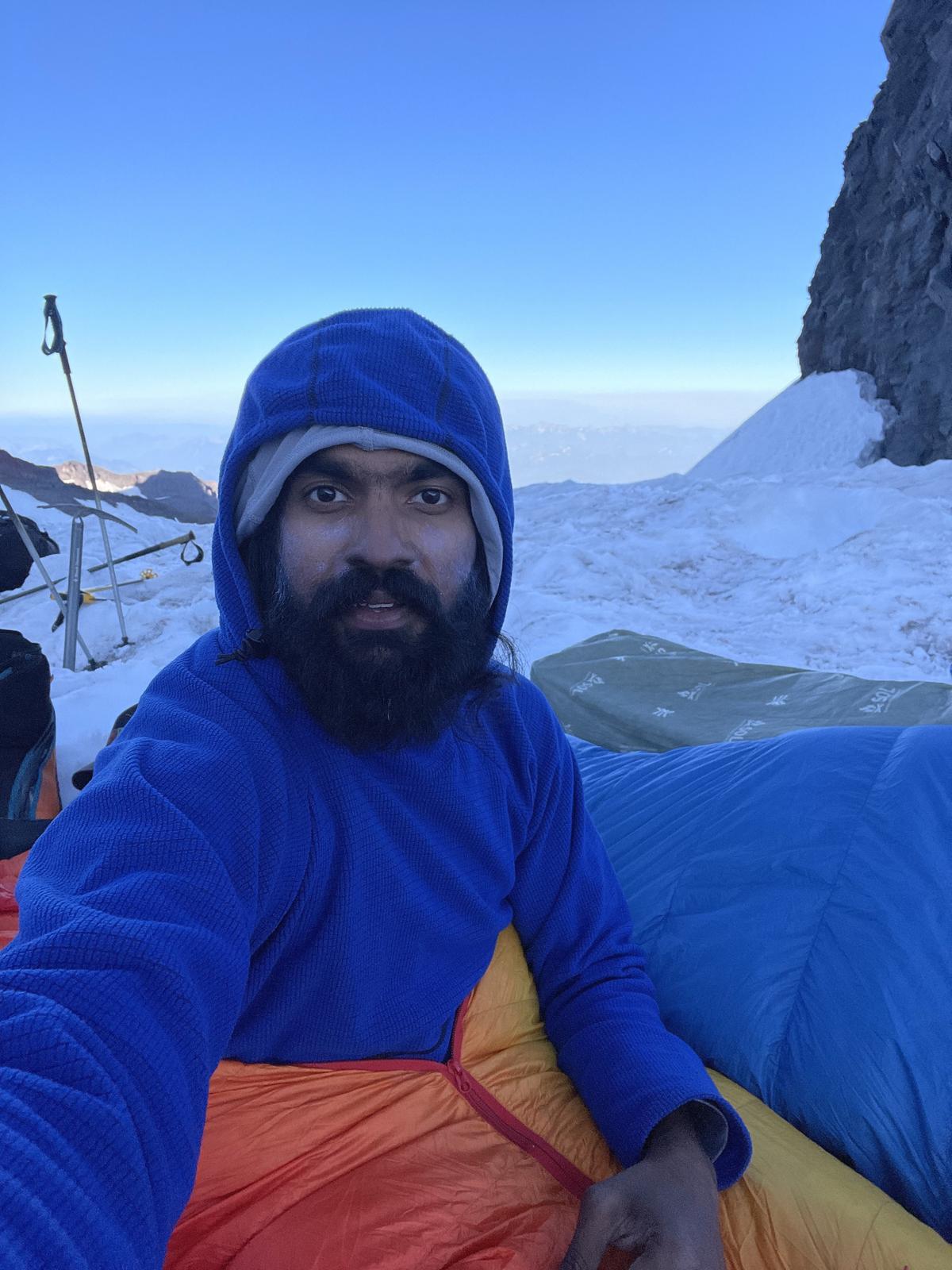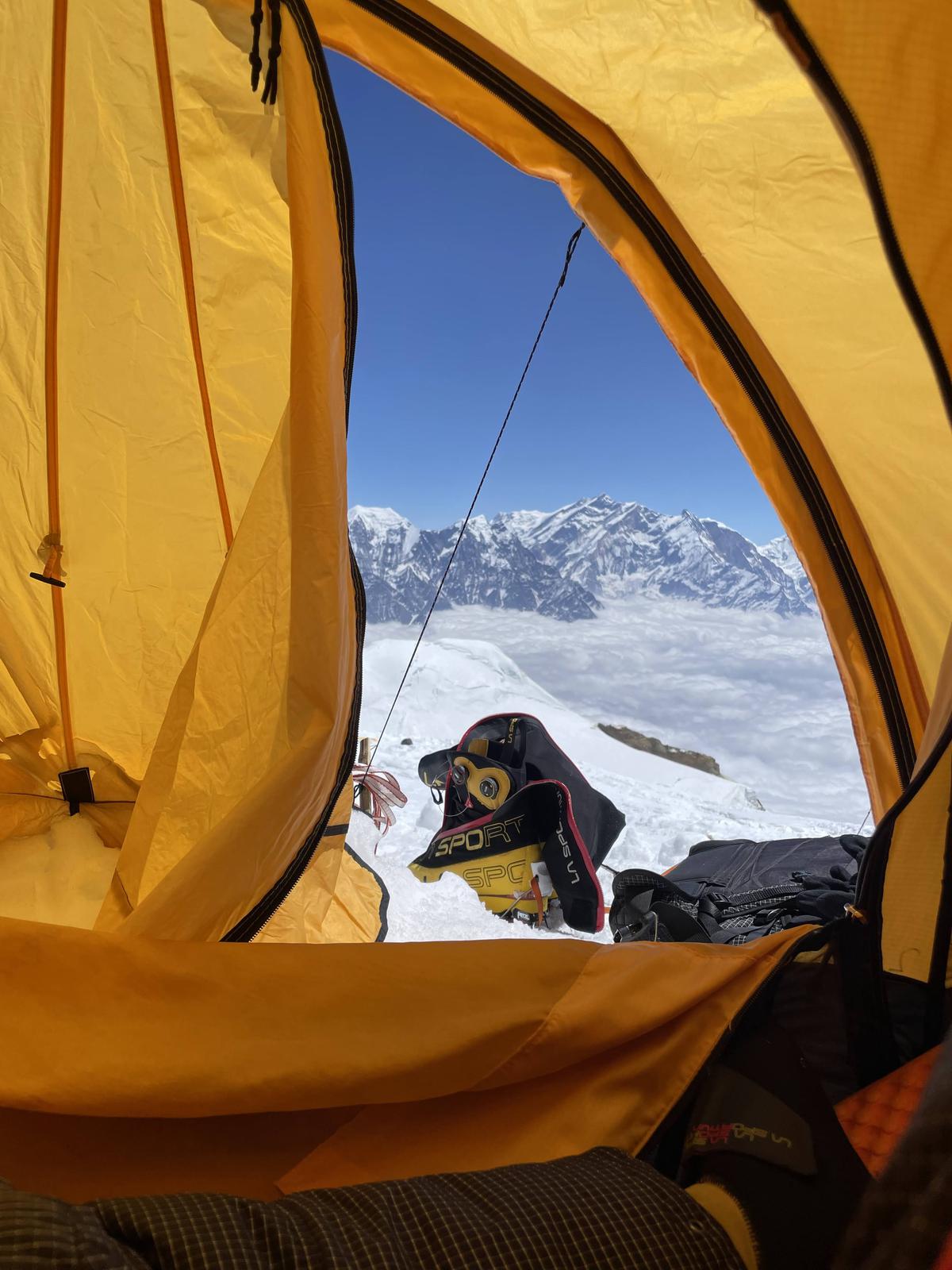[ad_1]

Anurag Nallavelli during his mountaineering expedition to scale Dhaulagiri, Nepal
| Photo Credit: SPECIAL ARRANGEMENT
On April 9, Anurag Nallavelli summited Dhaulagiri mountain range in Nepal, the seventh highest mountain in the world at 8167 metres above sea level. In September 2021, he summited Manaslu peak, 8163 metres above sea level. The Hyderabadi completed both expeditions without using supplemental oxygen. As a note of caution, it is imperative to add that this requires research and training to understand how one responds to high altitudes without supplemental oxygen.
Anurag’s motivation to not rely on supplementary oxygen came when he read the experiences of mountaineer Ed Viesturs: “The book No Shortcuts to the Top: Climbing the World’s 14 Highest Peaks (by Ed Viesturs and David Roberts) inspired me.” Anurag went through high altitude training in Oregon, United States, and says, “Each mountaineer’s body adapts differently to high altitude conditions. I read up and trained before taking up such a method. Carrying an oxygen cylinder or bottles would have meant more weight. In case of malfunctioning of oxygen equipment, mountaineers have to return to the base.”

Anurag Nallavelli
| Photo Credit:
SPECIAL ARRANGEMENT
Anurag moved to the United States in 2015 to pursue his masters in information technology and later began working as a software engineer. “I was not an outdoors person while in Hyderabad, except playing cricket with friends.”
A backpacking trip with a friend In 2018 was the turning point. Soon, he turned into “a weekend warrior”, flying out on Friday evenings from his base in Michigan and returning to work on Monday mornings.
The pandemic changed his lifestyle further. He was on a snowboarding trip in California when the US imposed a lockdown: “A friend and I had to stay put at the Love Creek Sanctuary in California where we had checked into an Airbnb accommodation; we did not know how long the lockdown would last. The couple that managed the animal sanctuary allowed us to stay and asked if we can chip in and work with the animals. We learnt a lot. We also had our work laptops and logged in remotely.”
Ever since, the sanctuary has been Anurag’s base and he gave up the Michigan apartment. Intermittently during the pandemic, he went on hiking trips in Colorado and connected with mountaineering enthusiasts. The growing interest in mountaineering expeditions took him to training facilities in Oregon and Colorado. He trained for six months and climbed Denali, the highest mountain range in North America in May 2021. “The expedition was expected to be of three weeks duration, but I completed it in 11 days. I wanted to do more.”

Anurag Nallavelli captures a stunning moment during the expedition
| Photo Credit:
SPECIAL ARRANGEMENT
He trained further to understand how far he could push himself in tough conditions. The hiking and mountaineering expeditions also changed his dietary habits.
Anurag turned vegan, stays away from added sugar and follows intermittent fasting when not on an expedition. He mentions that he was a meat eater and social drinker earlier.
Mountaineering has also taught him to live with fewer things: “I no longer have an apartment or a car in the US. I move from one place to another for hikes and expeditions and temporarily stay with friends and family. Living out of backpacks, I have realized how little we actually need to live.” Working remotely has also helped the nomadic lifestyle.
Anurag is now in Hyderabad to spend time with his family and is already looking forward to more mountaineering expeditions from September. While descending from Dhaulagiri, he lost his backpack and a glove and suffered frostbites. “I need to rest and recuperate before the next season.”
[ad_2]


